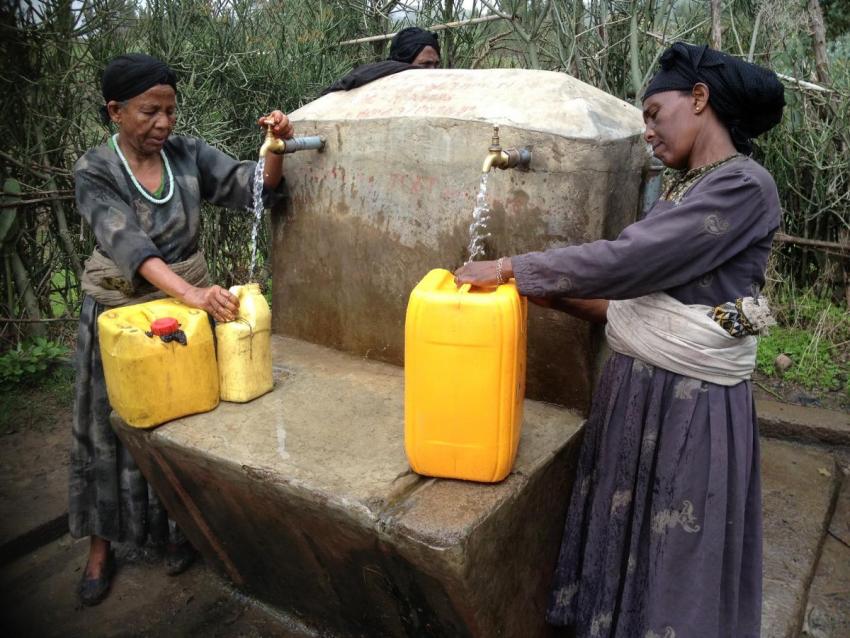IRC Ethiopia is working to adapt programming and engage in line with the COVID-19 response

Published on: 02/06/2020
Life is not business as usual in 2020. The COVID-19 pandemic has changed most things in our lives, and it seems that we are adapting a different routine. Following the reporting of positive cases in the capital and other regional towns, a five-month state of emergency was declared in Ethiopia. The state of emergency banned all public gatherings of more than four people, greeting with a handshake, all movements at land borders except for the flow of cargo and essential goods, students and teachers meeting physically, and transport service providers are obliged to reduce passenger loads by 50%. We, staff members of IRC WASH, are also working from home due to the circumstances.
IRC WASH Ethiopia developed a project continuity analysis to show how the COVID-19 pandemic is affecting IRC’s project activities and to organise adaptation measures being taken.
The pandemic has directly impacted the major activities of IRC WASH Ethiopia as learning alliance meetings, symposiums, workshops, and trainings cannot be delivered using normal set-ups. Multi Stakeholder Platform (MSP) meetings for USAID Transform WASH are halted, USAID Sustainable Wash Systems Learning Partnership (SWS) workshops and learning alliance meetings are frozen, and the Millennium Water Alliance Sustainable WASH Programme project is affected since it involves consultation meetings and trainings with both alliance members and government partners. Even one-off events, like UNICEF’s One WASH Plus Ethiopia project learning symposium, which was a week away, was postponed since it was difficult to ensure safety of participants amidst the outbreak.
To cope with such challenges, IRC WASH Ethiopia is trying to find solutions and adapt. For example, the USAID Transform WASH project resorted to social media and created Telegram groups for regional and national MSP discussions to continue. To facilitate active participation, the project is providing one gigabyte monthly internet data packages for each of the 200 group members. The groups created are “private” to avoid undesired advertisement and enable the administrator to add new members to the group. The Telegram groups are expected to be active even beyond COVID-19 for sharing important information regarding sanitation marketing.
Beyond the challenges and adaptation, IRC WASH Ethiopia is also playing its own role in the COVID-19 response by participating in the national WASH task force meetings being held online and hosted by the Ministry of Water, Irrigation and Energy. The WASH task force developed a strategy and a preparedness and response plan to address the immediate WASH interventions and measures that must be undertaken in relation to the outbreak.
As a contribution to the effort, IRC WASH Ethiopia supplied hygiene materials, 300 cartons of laundry soap, which were distributed to quarantine centres located in Addis and other regional towns.
As the pandemic continues, IRC is working to adapt programming and engage in line with the COVID-19 response. It has initiated discussions with donors on necessary changes and is continuing to explore the possibility of redirecting unutilised budgets from meetings or travel budgets to continue supporting our partners' and project stakeholders’ efforts to fight the COVID-19 outbreak. Most donors have been receptive to the changes, continuity planning and strategising. The approval of changes is ongoing.